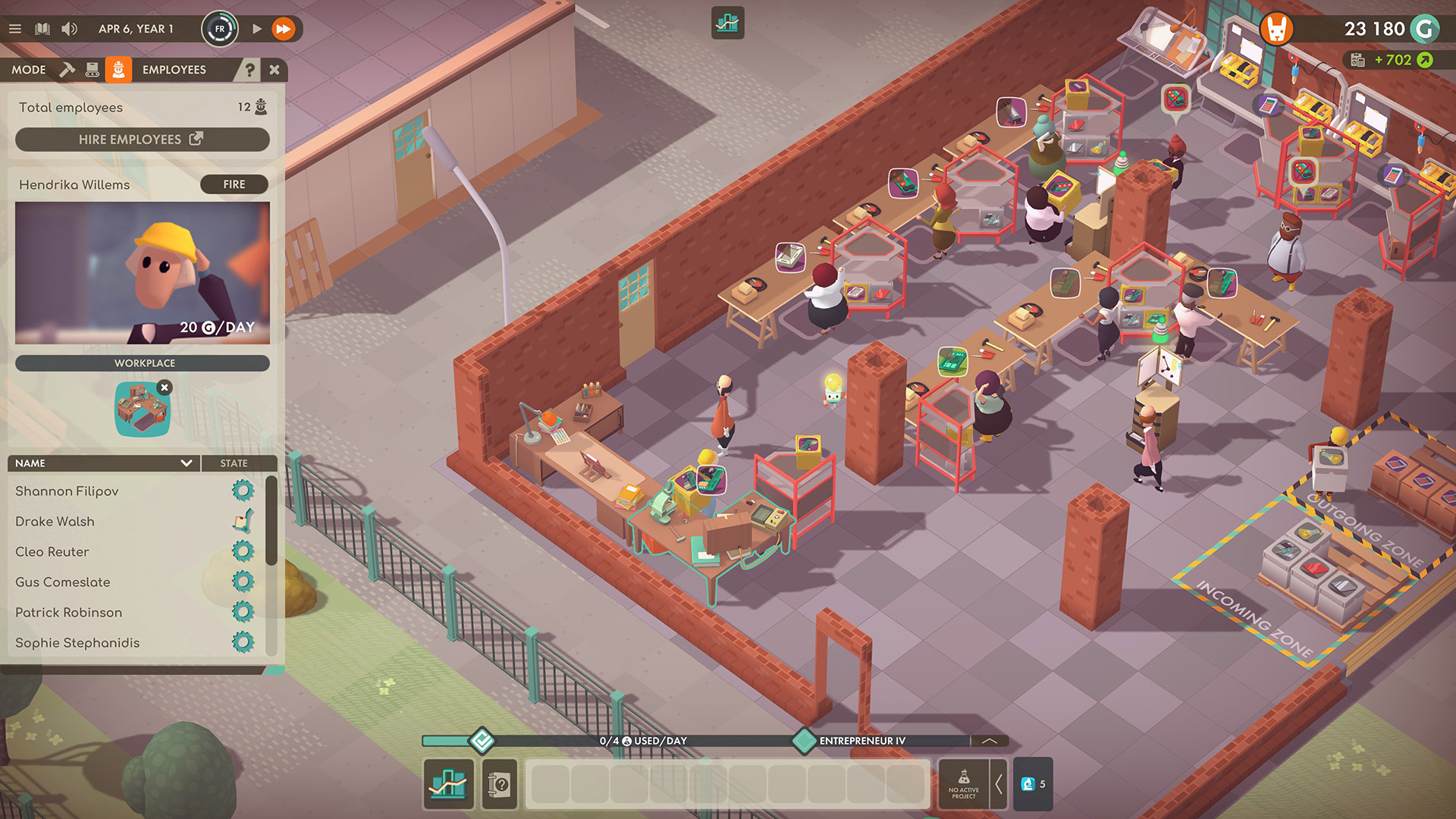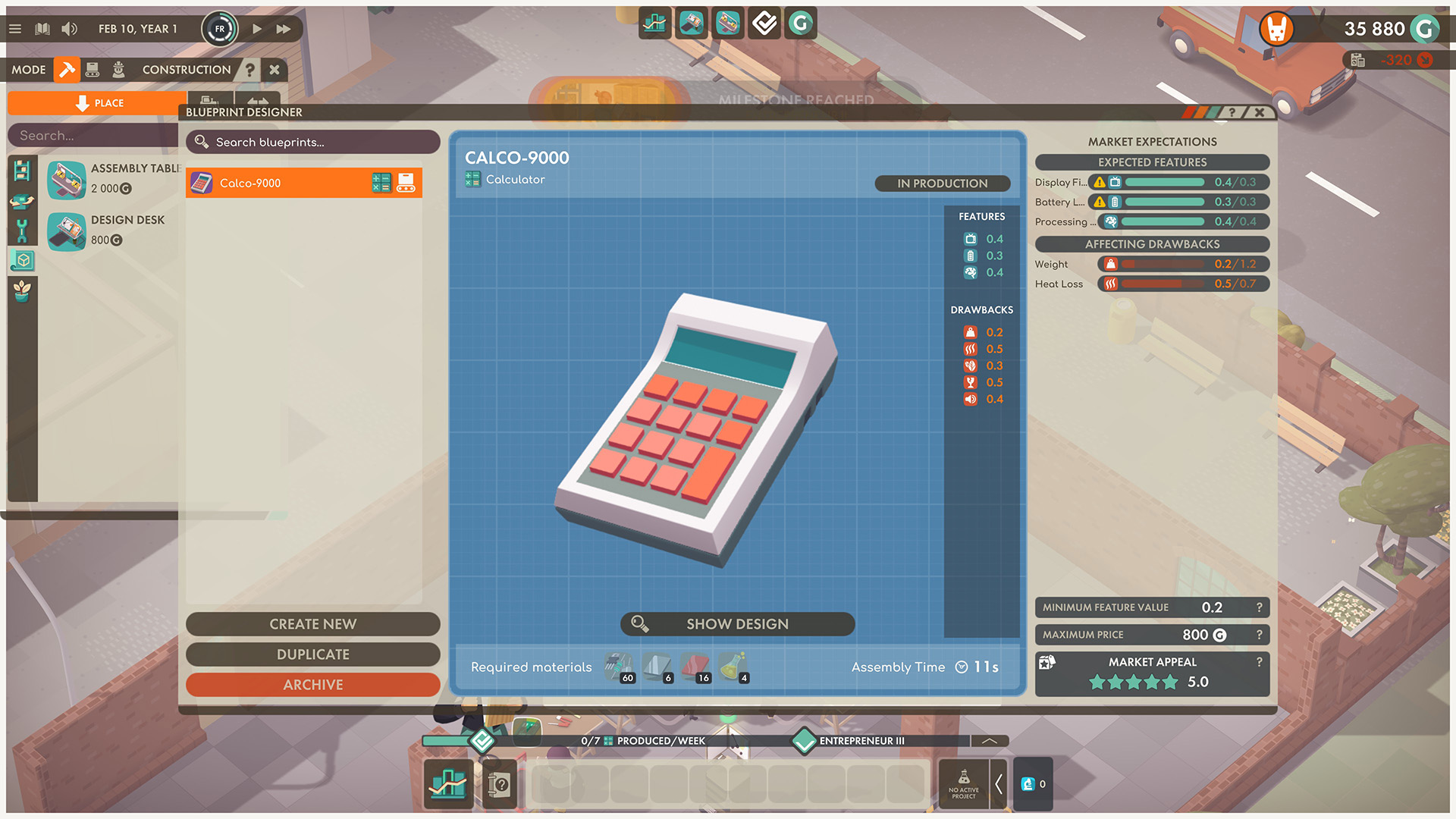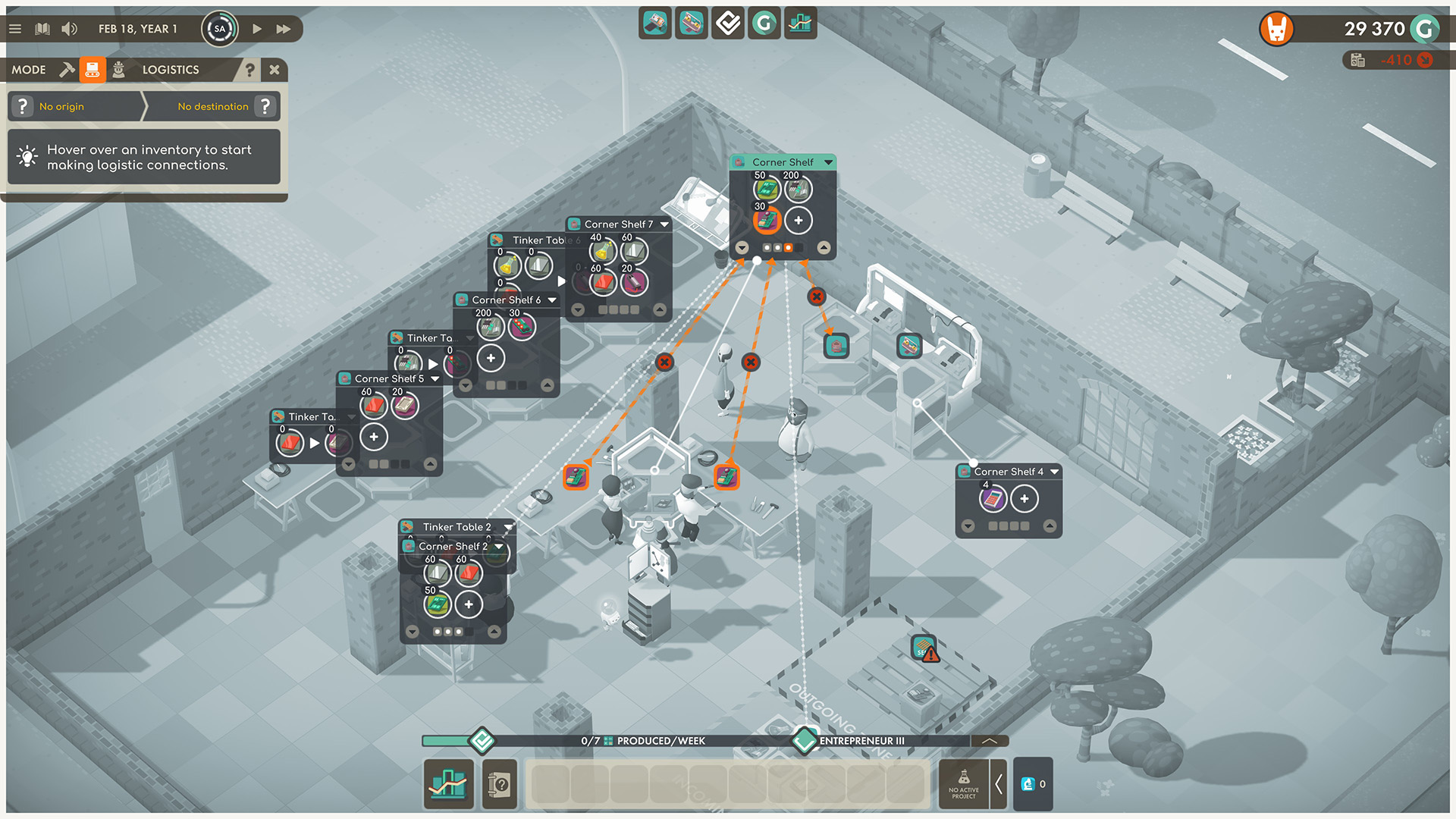
Ah, trade. You gotta adore it. Men with twirly moustaches posing in entrance of big chains. Women standing subsequent to teetering piles of code used to ship astronauts to the moon. Countless ghosts of mangled Victorian kids haunting the greased cogs of matchbox factories. Elon Musk driving atop a tiny submarine like a cowboy to the underside of the Mariana Trench to rescue his frisbee. Humanity is at its easiest when it’s constructing, designing and producing the huge portions of plastic rubbish demanded by the growling and insatiable abdomen of our horny benefactor and god, world capitalism.
Good Company is a tycoon manufacturing unit builder by which you play the function of lead architect, CEO and engineer of a sequence of rising electronics startups. It’s vaguely set someplace within the golden age of American innovation, again within the mid 20th century when General Electric wasn’t the slowly desiccating company megalith it’s at this time, however relatively was on the bleeding fringe of invention, its analysis and growth departments attracting the brightest engineers from all over the world to provide you with model new methods to make toast.
There’s additionally a sprinkle of retro-futurism within the type of pleasant robotic sidekicks and wild mechanical automation, the type of magical steel actuality dreamed up in the course of the daybreak of the age of comfort, when housewives have been being promised liberation from the drudgery of chores via fantastical new machines like self-cleaning microwave ovens and dishwashers with little steel arms so they may load themselves. Little did these housewives know that by the point we really acquired our robotic vacuum cleaners, they might be bought solely by bored technophiles whose lease agreements don’t enable pets.
Which is all to say that Good Company has a very marvellous model and setting, its interface and character design evoking a spirit of trade that’s removed from the cruelty and heartlessness of the commercial revolution, and rather more to do with the sensation of limitless potential and shared financial prosperity caused by the arrival of the circuit board. Tycoon games so usually aren’t grounded in something apart from the chilly logistics of merely making issues come out of an enormous pipe on the finish of a soulless meeting line, so it’s refreshing to play in an idealised world with such a congruous 70s modernist aesthetic. I imply, simply have a look at this calculator. It’s a factor of magnificence.
So what do you really do? Well, your manufacturing unit – be {that a} cosy storage or a multi-building complicated – has an space the place incoming base supplies are delivered, your plastics and metals and chemical substances. You decide these up along with your naked CEO fingers, take them to a tinkering desk to show them into issues like LED shows and battery stacks, earlier than taking that module to an meeting desk, which might flip these modules right into a completed product. Drop the product within the outgoing zone and will probably be whisked away to be offered on a dynamic market pushed by client whim. You repeat this course of till you might be Steve Jobs.
Of course, no person turns into a billionaire just by working onerous sufficient, so like several good industrialist you could suckle greedily from the red-raw teat of a labour power. Employees may be employed to carry out any of the operations of the manufacturing unit in order that your little CEO avatar can flip their consideration to much less vocational issues akin to new product design. Stick a employee on a tinkering bench they usually’ll mechanically flip specified supplies into helpful modules, which might themselves be forwarded to different desks by couriers to be additional refined into higher-tier elements. In this manner, uncooked stuff flows into your manufacturing unit at one finish, and ultimately comes out the opposite as a pleasant new pocket laptop or handheld games console.
A logistics display exhibits you the way supplies are flowing via your manufacturing unit, a stay graphical overlay making sense of the operations of your meat-powered meeting strains. This is the place Good Company might have taken a spill, as time and again within the tycoon style these very important illustrations of difficult information are obfuscated by some horrendous afterthought of an interface. But right here, even on this preliminary early entry launch, it really works intuitively. Good Company’s neat and straightforward to navigate visible interface is a small triumph, and with out it issues would shortly fall to items. Shelves and desks seem as nodes with inventories, and by drawing connections between these nodes you designate the path of journey of supplies. If a route appears to reach at a lifeless finish – say there’s a course of that merely piles up batteries on one man’s bench relatively than sending them on for use elsewhere – you’ll be warned with a useful exclamation signal.
As far as I can inform there’s no fail state to talk of – or if one exists it’s fairly tough to achieve – and so trial and error can be utilized to get a way of how totally different setups have an effect on your manufacturing unit’s effectivity. Unpicking any issues along with your more and more spaghetti-like logistics linkages isn’t a lot a velocity bump to progressing via the game, as it’s the whole level of it. You are a Kerplunk participant, swapping in desks and modules as you design new and improved variations of current merchandise with totally different necessities. Making new devices is a game unto itself, as you fit Tetris-shaped modules right into a grid to fulfill the calls for of at this time’s discerning customers, balancing battery life, constancy, weight and so forth.

As you play you’ll realise helpful aspect functions of your logistics tree. For instance, have a workbench output to 2 cabinets however prioritise solely one among them, and the opposite will naturally start to behave as an overflow for these parts which might be being produced quicker than they’re being consumed. Check the stock ranges on that shelf and also you’ll see at a look the place wastage is occurring, after which think about the place efficiencies might be made.
Which I think about is how Jeff Bezos does it, whizzing up and down the aisles of an Amazon warehouse on his Segway, gold cash spilling from his pockets as he turns sharply, earlier than pausing at one rack, demanding to know why there are too many copies of Dean Koontz’s The Eye Of Darkness, after which firing all people in his eye line.





